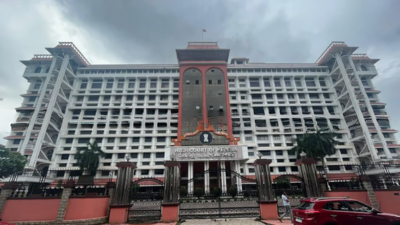On Monday, the Kerala High Court directed the Special Investigation Team (SIT), which is investigating sexual harassment complaints within the Malayalam film industry, to also examine the widespread use of alcohol and drugs on film sets and related workplaces [Joseph M Puthussery v. State of Kerala & Ors].
While addressing cases linked to the Hema Committee report, a special bench consisting of Justice AK Jayasankaran Nambiar and Justice CS Sudha considered a request by advocate TB Mini to instruct the excise department to impose restrictions on the consumption of drugs and alcohol on film sets.
In response, the Bench emphasized that the SIT should take necessary legal actions to address and curb the excessive use of alcohol and drugs in movie production settings.
“We also note that the report of the Committee highlights the rampant use of alcohol and drugs on film shooting sets and other related workplaces. The SIT shall conduct an investigation into this matter and take necessary actions as required by law. Further steps should be taken in the future to prevent such widespread use of alcohol and drugs at shooting locations and related work environments, which are in violation of the law,” directed the Bench.
The Court further stressed that ongoing efforts must be made to prevent such activities in the future.
The special bench, which includes Justice AK Jayasankaran Nambiar and Justice CS Sudha, is reviewing petitions seeking an investigation into the findings of the Hema Committee report and appropriate action against those implicated.
This special bench was constituted to address issues emerging from the report, which exposed widespread sexual harassment and casting couch practices in the Malayalam film industry.
The Justice K Hema Committee was established by the Kerala government in 2017 following a petition from the ‘Women in Cinema Collective’ to investigate challenges faced by women in the Malayalam film industry.
The report, although redacted, was made public on August 19.
Several notable members of the film industry have been named as alleged perpetrators of serious sexual offenses, including rape.
Among the cases before the special bench is a public interest litigation (PIL) seeking criminal proceedings against those accused of sexual misconduct in the report.
After reviewing the unredacted version of the report, the Court noted that the witness statements recorded in the Hema Committee report indicated cognizable offenses.
The Court clarified that these statements should be treated as ‘information’ under Section 173 (information in cognizable cases) of the Bharatiya Nagarik Suraksha Sanhita (BNSS) of 2023 and instructed the SIT to proceed according to the law.
The Court emphasized that the SIT must protect the anonymity of victims and survivors during the investigation process.
“The name of the victim/survivor shall be redacted in the FIR, and no identifying information shall be made public,” the bench ordered.
It also specified that the accused would receive a copy of the report only upon the submission of the final report.
Regarding the investigation process, the Court directed the SIT to adhere to the applicable legal provisions.
The investigating officer must assess whether there is sufficient evidence to file a final report; if not, a referral report should be submitted.
The Court also stated that witnesses should not be forced to provide statements. The SIT should reach out to victims and survivors for their accounts, and if witnesses decline to cooperate or evidence is insufficient, then appropriate steps as per Section 176 (procedure for investigation) of BNSS should be followed.
Additionally, the Court noted that some parties had yet to respond to the counter affidavit submitted by the State.
As a result, the Court directed them to submit their responses and scheduled the next hearing for October 28.


